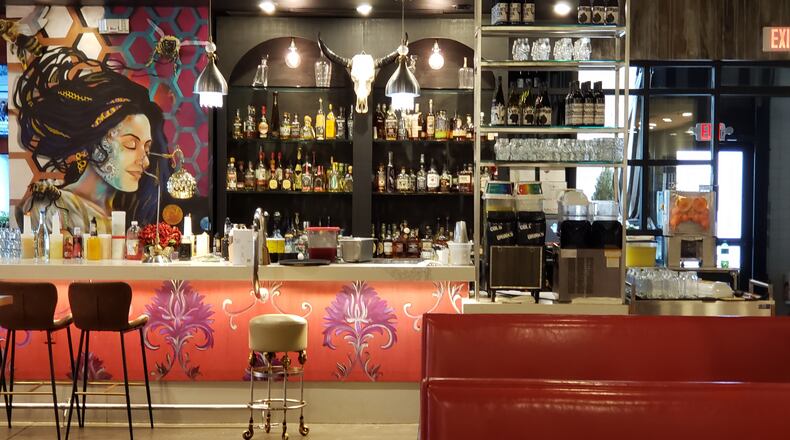Bar and restaurant owners said DeWine’s idea will continue to hurt an industry that has already suffered blows during the pandemic.
“It’s absolutely terrible,” Central House of Brews co-owner Kevin Frame told the Journal-News Friday as he scrambled to determine the effect the restriction would have, including the shifts of two bartenders slated to work a 7 p.m. to 2:30 a.m. shift.
“It’s going to destroy a lot of small businesses like this. They act like this coronavirus has a time frame. It seems to be the smartest virus I’ve ever heard of. It don’t come out until after 11 o’clock. It’s the stupidest thing I’ve ever heard of.”
Frame, who said his business “lost of a lot of money” during and after the two-month mandatory shutdown of indoor dining and drinking earlier this year, said he fears the new measure will destroy what little businesses have struggled to rebuild. The business, which is open daily from 11 a.m. until 2:30 a.m., enjoys a steady flow of foot traffic from neighbor Combs BBQ, but sees a significant amount of its revenues and tips during “prime time” hours of 10 p.m. until close, he said.
“I understand they’re not shutting it down completely again, but still they’re killing us on our best time frame where we make the most money,” Frame said.
Chris Britt, regional manager of taco, tequila and bourbon hall Agave & Rye, which has a location in Liberty Twp., said the new restriction will only shave off an hour off the restaurant’s alcohol service Monday through Saturday at Liberty Center.
“With all this craziness that’s been going on since COVID started, we’ve kind of been proactive and, if things are going to happen, to be prepared for them,” Britt said. “I don’t think (the new restriction) is going to hurt our business because we close at 11 every night and we’re not extremely busy that last hour.”
Britt said that “obviously, there’s a reason” why Ohio is enacting the new measure and others like it: the health and safety of the general public.
“We’re totally on board with whatever is going to keep our staff and the communities that all of our stores are located in safe,” he said. “That’s priority No. 1.”
Ann Marie Cilley, owner of The Casual Pint Hamilton, said the new restriction was “not the worst but not the best.”
Hours at the business now “match pretty closely” to pre-COVID-19, Cilley said.
“We scaled back significantly during COVID (and) closed altogether on Mondays and only opened from noon to 8 p.m. Tuesday to Sunday,” she said. “We (now) close by 10 p.m. anyway Sunday through Thursday, and we tend to thin out at least lately after 10 p.m. Friday and Saturday. Many states have done it already.”
She said she was concerned the ruling was “a bit random and without the data supporting that bars are actually a key contributor to the spikes.”
“I’m concerned that it’s a start to scaling back further again on bars without sufficient evidence,” Cilley said. “It feels a bit scapegoat, at least right now.”
Casual Pint Hamilton is considering adjusting its hours once again when it has more details about DeWine’s “curfew,” Cilley said.
“We may choose to stay open until 11 p.m. daily to allow people to enjoy their food and beer as long as possible,” she said.
Doug Smith, owner of Trinity Gastro Pub in West Chester, said his business has been closing earlier at 11 p.m., and when business is slow, even earlier to save labor costs.
“Other than last call being just slightly earlier, it doesn’t really affect what I’ve been currently doing, but that is in reaction to the whole situation to begin with,” he said, but added “people won’t push the limit, so I suspect that customers will leave earlier and ... then we have to keep reacting to the situations because we have to be very prudent in covering the labor costs.”
Frame and other business owners said they are concerned the measure was enacted with no idea of how long it could last, leaving the wages, and possibly the jobs of many of their workers hanging in the balance.
“We don’t know where this is going or how long it’s going to affect us,” he said.
About the Author

